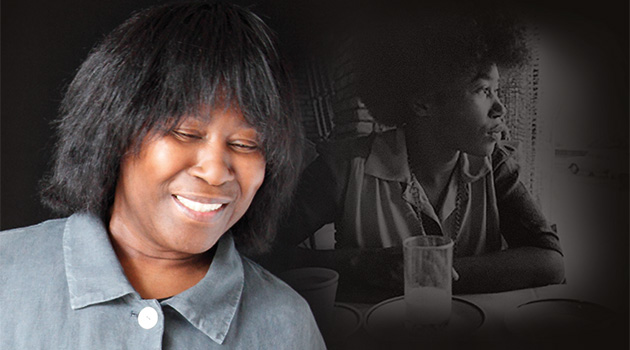The Mind of a Musician: A Conversation with Joan Armatrading

Thérèse LaGamma: When did you start playing music?
Joan Armatrading: I’ve been playing music since I was 14. I’m self-taught. I learned to play by ear—not so much by listening to records as by hearing the music all around me. I’m more into live music than records. But I’m always listening to music and trying to get better.
TL: What was the soundtrack of your childhood?
JA: When I was a girl, I was influenced by many musicians but was not one to sit for long stretches and listen to music. I think Joni Mitchell is brilliant—the Blue Album, which we all know, is an absolute classic and just the best. But it wasn’t what made me want to write music.
TL: What did make you want to write music?
JA: I became interested in music when my mother bought a piano and put it in the front room of our house. That’s when I started to write and play. Wherever you put your hand on the piano, it makes music. I made things up and if it sounded nice, I kept it. As time went on, I studied books and learned cords. But initially, it was about hearing the music and learning organically.
TL: You are known for mentoring young musicians. What do you see as today’s musical trends?
JA: I see a lot of younger musicians who want to go back to writing songs with feeling, as opposed to getting into the image game that defines much of the music business today. I don’t have a problem with the image game—there’s room in the music business for everyone, including artists who are image driven. But there’s also room for serious musicians who want to write with feeling, form their own bands, and have a long career.
TL: Is this how you define your own music, as writing from feeling?
JA: Yes. I write from how I feel, from observation, and generally from looking at something real. Of course, I write about myself as well. Songs tend to tell you what they want to be. I can see all the emotions, from happiness to anger, and use my songs to communicate those emotions. People become emotionally attached to my music.
TL: I’ve read that you particularly like American audiences. Why is that?
JA: The enthusiasm of American audiences is very enjoyable. When they like a song, you know it— you don’t have to wait until the end of the show.. They know and love the songs, and they get involved. It’s great for me to get that instant feedback.
TL: What is your most memorable career highlight?
JA: It’s actually not a musical highlight, but the proudest moment in my career was when I earned a college degree in history in 2001, graduating with honors. I studied while on tour. I have quite a few honorary degrees, and have been nominated three times for a Grammy, but my college degree is what means the most.
TL: What can your fans expect to hear at your Music Hall performance, which is part of your last major world tour?
JA: I will be playing songs from many different albums, up to my most recent release in 2012. The very first number, City Girl, is from my 1972 album. I’ll be playing solo and on instruments that include a piano, 12 string guitar, acoustic guitar, and electric guitar. Yes, this will be my last tour on such a big scale—after it ends in late November, I don’t want to be on the road nonstop.
